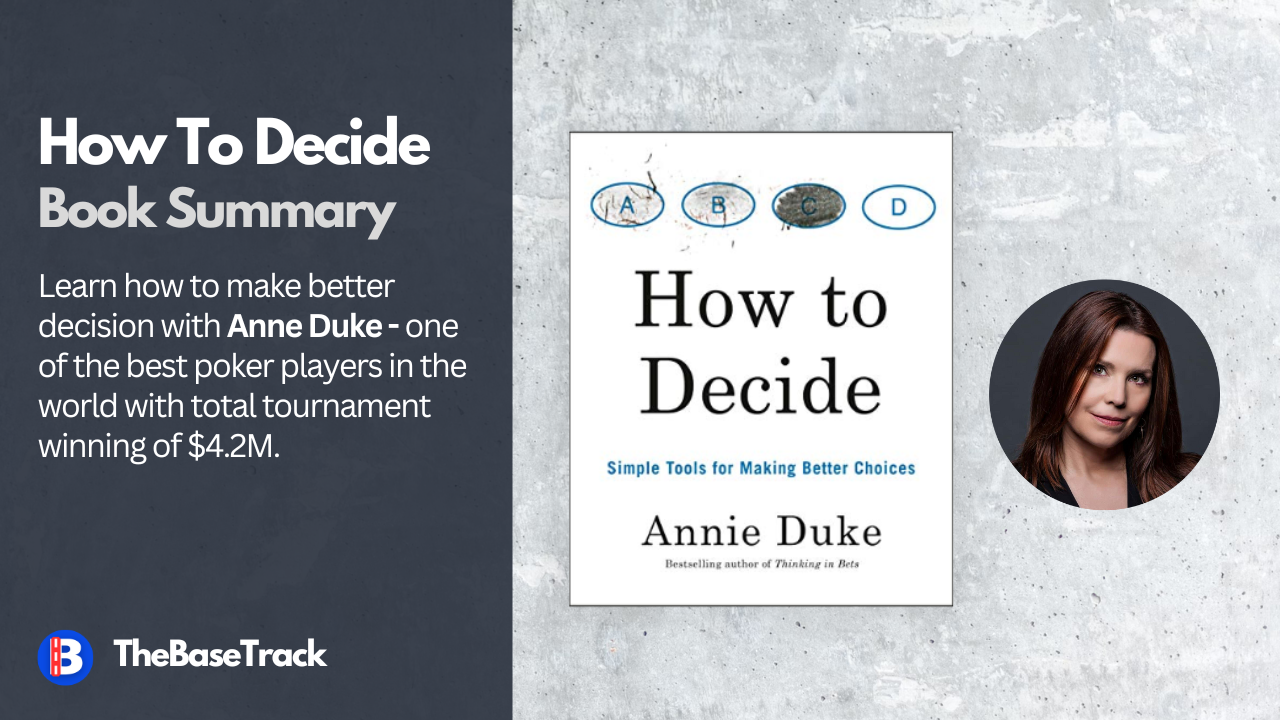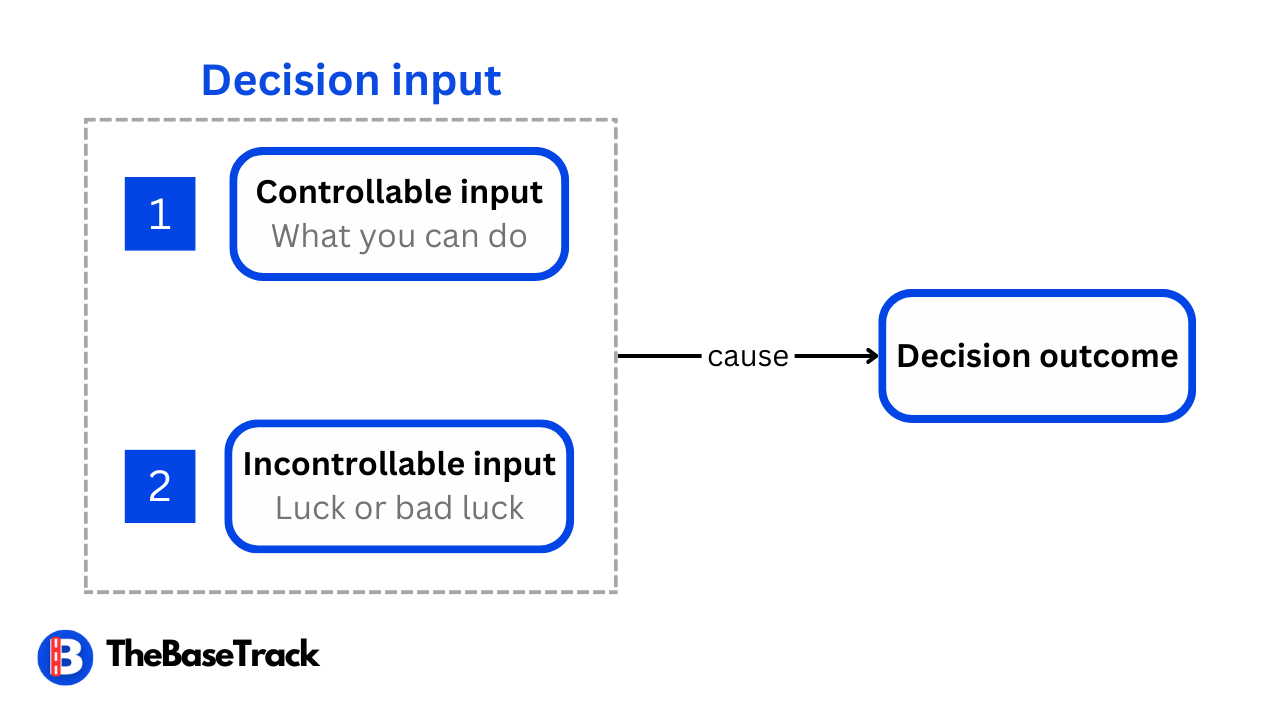How To Decide by Annie Duke - Book Review and Summary

📚 This is the summary of the book "How To Decide", writtenb y Annie Duke. The idea of this book revolves around how to make better decision by investing in refining the decision making process, meaning the input of the decisions. In the books, Annie Duke listed out some cognitive biases, and common pitfalls of people when making decisions, and also gave some tools and tips to mitigate it.
🤔 Should you read this book?
In short, this is unfortunately not a well-written book, so I don't recommend you read it. My suggestion is that you read this summary instead, then subscribe to Annie Duke's newsletters, webinars, and her podcast with Lenny. It would save you so much time.
If you have already read this book (like I did), you will spot out the pattern in the way Annie Duke structured each chapter:
- (1) Bold statement: Anne starts with a bold statement in every chapter. Like "Think positive but plan negative"
- (2) Reflective exercise: then she gave some reflective exercises for us to reflect back our life at point of decision making and try to get us depict what would we do in such case.
- (3) Research: reinforcing her points by giving some researches or empirical evidence that is related to it. Like how she demonstrates
- (4) Anecdotal narrative: Ending the chapter by an anecdotal narrative, like sharing how President Kennedy overlooked the CIA's flawed plan in Fidel Castro's Bay of the Pig Invasion.
Even though it looks seemingly structured in this way, the book has some issues (in accordance to my reading experience):
- Some reflective exercises are useful, but some of them are too obvious and boring.
- Annie Duke spent whole lot of time talking about cognitive biases, which in this case, other books like Thinking Fast and Slow or Nassim Taleb's Incerto series have already done a better job.
- Some anecdotal narrative and researches looks too forced in an attempt to make a point.
- I didn't see a lot of pieces that Annie shared her real experience and how she applied these knowledge. I would say it lacks some authenticity material.
Don't get me wrong, the fact that the book is badly written doesn't erode its main substance. It just made the book harder to read and consume by an average people, you just need to take more time to understand what Annie meant.
Despite the book's frustrating reading experience, I continued to read until the end because I believed that Annie is a very good tactical decision maker.
This is, in fact, proven, because she has a track record in playing competitive poker, so she should have a knack for decision making. The other reason I said this is because: I listened to her advice in Lenny's podcast, and I know deep down that those advice works. It has worked for me in the past and I believe it will continue that way in years ahead, like how you should "make the implicit explicit" or "think positively but plan negatively" when doing decision making.
What Annie Duke shared are perhaps not new lessons, but Annie just made the lesson more explicit so that everyone can internalize it, that's the main value.
The bad writing of the book, as I'm giving the benefit of the doubt, maybe stems from the fact that Annie tactical lessons, even though is valuable and proven, are too micro to be transformed into a long form format, in the way that it looks like a professionally written craft. Because of that, Annie has made up for this by including researches and anecdotal narrative to back up her points, so it seems forcibly convincing and hardly connected with her aclaimed points and premises.
Separation of decision input and decision outcome
The core idea of this book is that. To make good decision..
- (1) you have to separate the decision input and decision outcome
- (2) invest time on refining process of forming better causal relationship between the controllable input and the decision outcome

The reason for this is that people often mistaking decision outcome for decision quality, this is what Annie called as "Resulting" or "Resulting bias".
Take a case that you quit a job and move to a new company. There are two scenario that would happen:
- (1) The job turned out really good. You liked your boss and your job make you more fulfilled in life. If you're like most people, you would assume that quitting the previous company a good choice.
- (2) The job turned out to be a disaster. Your boss is an a**hole and the company has this unpaid overtime working culture that you detest. If you're like most people, you would assume that quitting the previous company was a terrible decision.
In either of the case, the decision was the same, only the outcome was different. So luck must play a role here? But talking about luck is boring, you cannot rely on for decision making nor learn anything from it.




